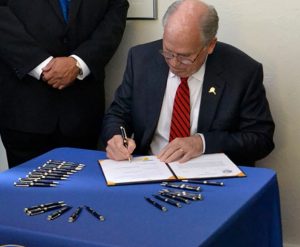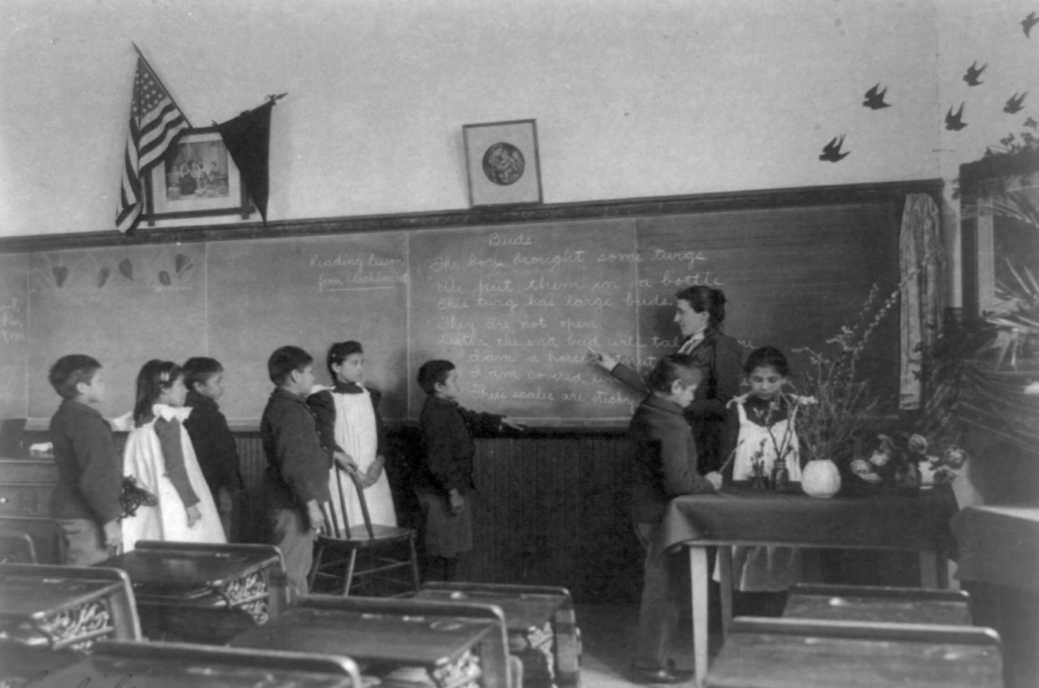
JUNEAU—Governor Bill Walker Monday signed into law Senate Bill 91, an historic reform of the state’s criminal justice system. The law advances data-driven, research-based policies to reduce recidivism, enhance public safety and curb corrections spending. It is projected to reduce the state’s prison population by 13 percent by 2024, saving the state $380 million.
Governor Walker also introduced a bill to repeal sections of SB 91 that advocates of sex trafficking victims are concerned could potentially create a loophole affecting the state’s ability to prosecute sex traffickers. The repeal bill ensures sex trafficking victims are protected from retaliation.
Using a portion of the savings, and half of the state’s anticipated tax revenue from the legal sale of marijuana, Governor Walker and the Legislature will reinvest $98 million over the next six years into treatment services in prison and in the community, reentry supports for offenders returning home from prison, pretrial services and supervision, violence prevention programming, and crime victims’ services.
“Today we’re making transformative changes to our criminal justice system,” said Governor Bill Walker. “With SB 91, we’re dropping the practices that we know don’t work to keep communities safe, and expanding the practices that do. I’m proud to join legislative leaders in adopting this reform package. It reflects a broad consensus among stakeholders and practitioners in Alaska on how to get the most public safety out of the dollars we spend.”[xyz-ihs snippet=”adsense-body-ad”]
The Alaska Criminal Justice Commission found that Alaska’s prison population had grown by 27 percent over the past decade, nearly three times faster than the state’s resident population. The commission also found the state spends over $300 million annually on corrections, up 60 percent over the past two decades. But nearly two in three inmates who leave Alaska’s prisons return within three years.
The new law addresses the state’s prison growth and high recidivism rate by:
- Adopting evidence-based pretrial release practices, and creating pretrial supervision for those released,
- Expanding diversion and reducing jail time for people convicted of misdemeanor crimes,
- Making drug possession a misdemeanor level offense, maintaining drug distribution at the felony level, and distinguishing penalties for high-volume versus low-volume drug dealing,
- Reducing presumptive sentence ranges for some felony level offenses to bring them in line with other states,
- Expanding eligibility for discretionary parole, and streamlining parole releases for first-time nonviolent offenders,
- Strengthening community supervision by standardizing sanctions and incentives for those on probation and parole,
- Capping prison stays for technical violations of probation and parole conditions, and
- Reducing maximum probation terms and incentivizing those on supervision to comply with their conditions through earned compliance credits and early discharge.
“We knew investing in treatment and victims’ services was critical,” said Senator John Coghill, who sponsored the bill. “SB 91 averts millions in future spending to allow for that reinvestment. This was an enormous achievement that will reduce recidivism, hold offenders accountable, and get the most public safety out of each dollar spent on our criminal justice system.”
“SB 91 has the full support of the Department of Public Safety,” said Commissioner Walt Monegan. “This shift in our state’s approach to addiction and low-level crimes will get us a far better public safety return on investment.”
“Reducing our state prison population is vital to making conditions inside the facilities safer, both for prison inmates and correctional officers,” said Department of Corrections Commissioner Dean Williams. “Senate Bill 91 will reduce unnecessary pretrial detention and also strengthen alternatives to prison for those convicted of nonviolent offenses.”
“This reform package follows the best research in the field and the best practices around the country,” said Greg Razo, Chair of the Alaska Criminal Justice Commission. “Today Alaska is making an historic investment into treatment and programming for those in our criminal justice system, and services for victims of crime. I’m very proud of our work on the Commission, and applaud the courage and conviction of our Legislature and Governor.”
The state received technical assistance from The Pew Charitable Trusts through the Justice Reinvestment Initiative, a public-private partnership between Pew and the U.S. Department of Justice’s Bureau of Justice Assistance.[xyz-ihs snippet=”Adversal-468×60″]








